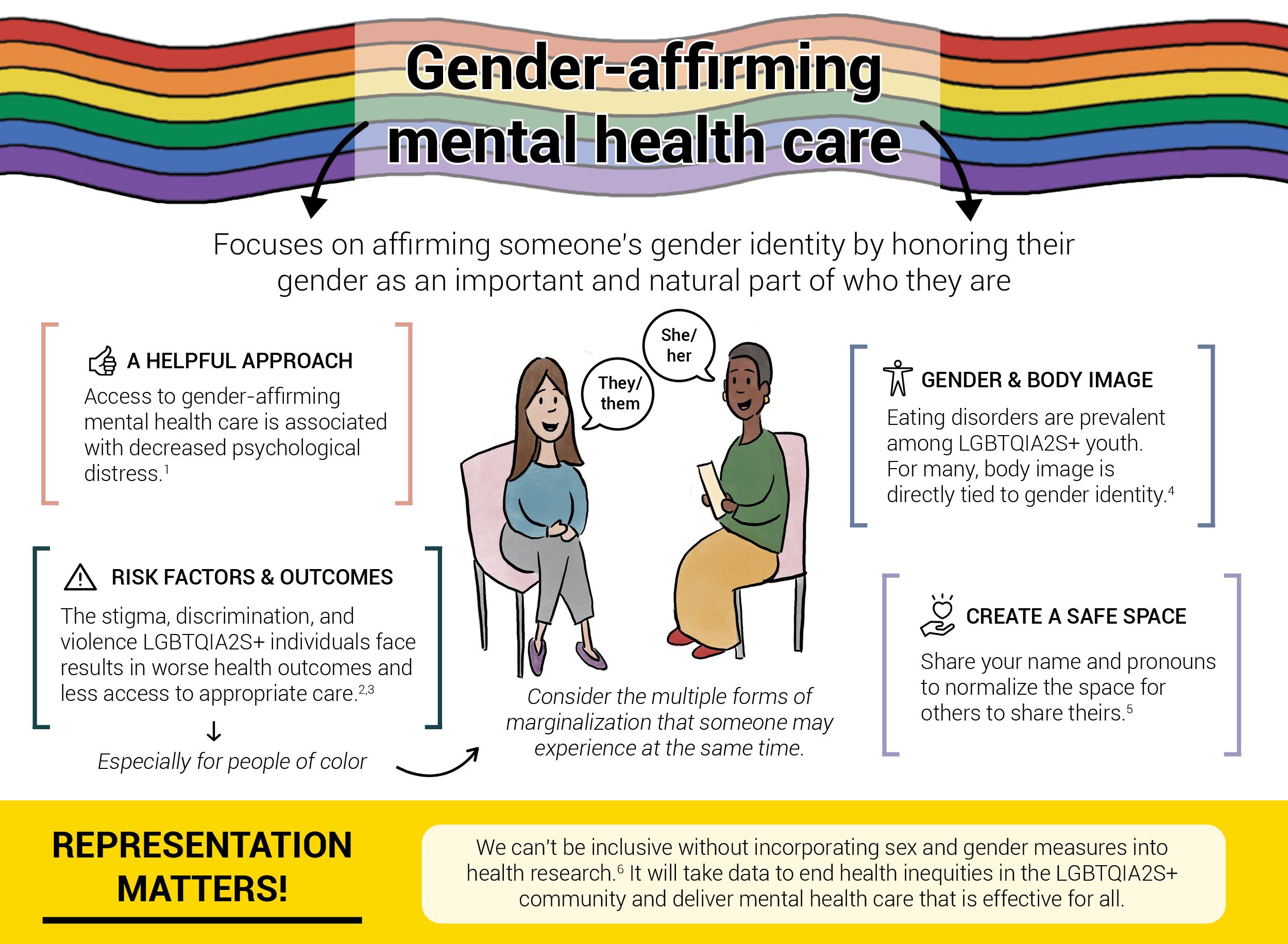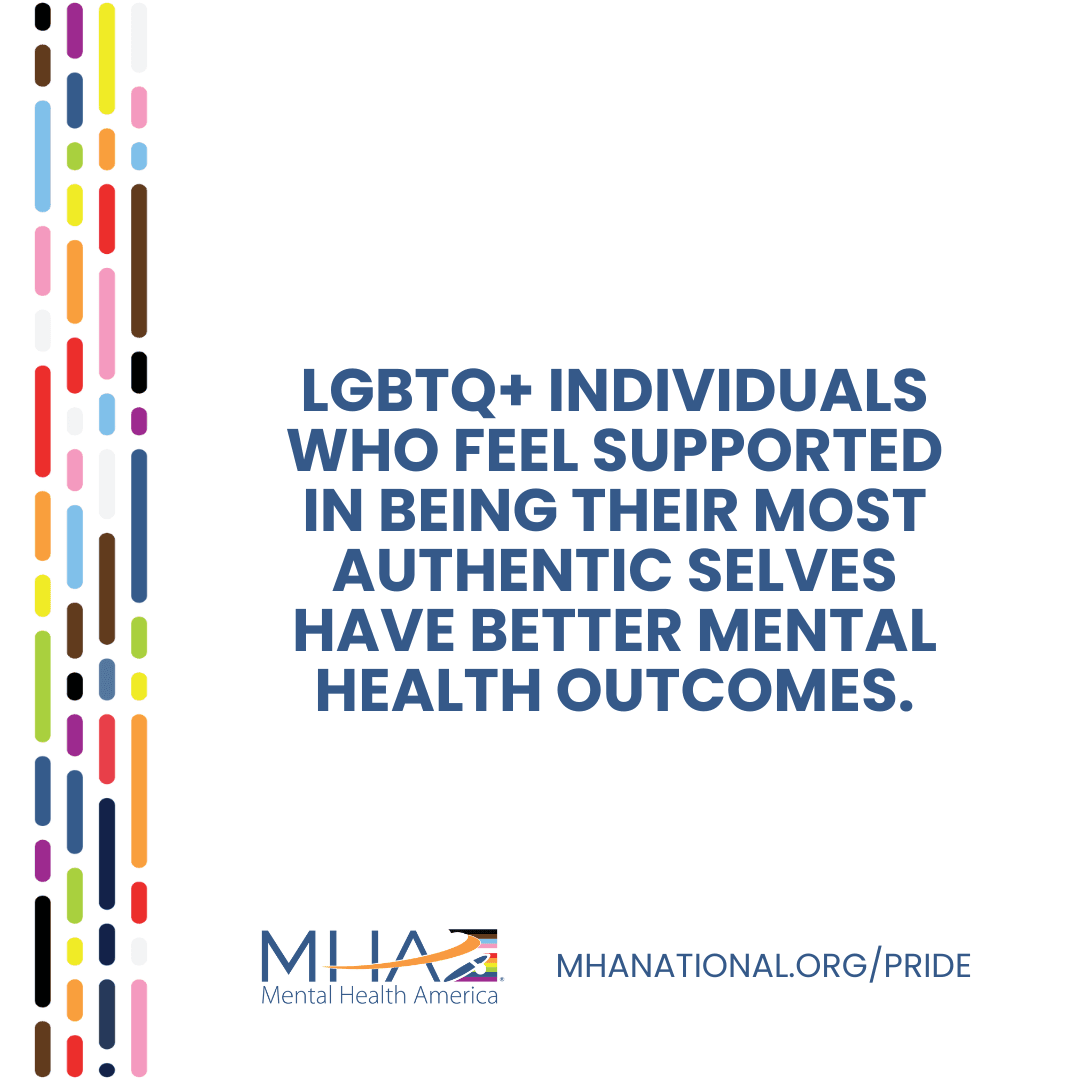
Jun 21, 2023, 4:05 am UTC
3 min
Created by
Gender-affirming mental healthcare: What it is and how to find it
Mental healthcare is a crucial aspect of overall well-being, but for transgender and gender-diverse individuals, finding supportive and understanding mental health services can be challenging. A recent study found that in 2020 fewer than 1 in 3 mental health facilities in the United States provide specialized LGBTQ services for youth.
Gender-affirming mental healthcare seeks to provide a safe and inclusive space for individuals to explore and address their mental health concerns without fear of judgment or discrimination. In this blog post, we will delve into what gender-affirming mental healthcare entails and share tips on how to find the right support.

What is gender-affirming mental health care?
Gender-affirming mental health care is a therapeutic stance that focuses on affirming a patient’s gender identity and expression and does not try to “repair” it.
Gender Affirming Therapy is a therapeutic stance that focuses on affirming a patient’s gender identity and does not try to “repair” it.
Source: American Psychological Association
When done right, it can improve the overall well-being of LGBTQIA2S+ people, address mental health disparities due to stigma and discrimination, support gender exploration, and help them cope with trauma and other life stressors.
There are 8 core themes to gender-affirming therapy that can help address the unique mental health challenges faced by transgender and gender-diverse people, such as gender dysphoria, societal stigma, discrimination, and access barriers to health care.
The core themes are:
- Trauma
- Shame
- Depression
- Self-harm
- Violence
- Sexuality
- Medical treatment
- Societal stigma
Why is gender-affirming therapy important?
Members of the LGBTQIA2S+ face multiple challenges that negatively impact their mental and physical health. That is especially true for individuals who hold multiple marginalized identities such as LGBTQIA2S+ people of color.
The results of the latest survey by Trevor Project underscore these unique challenges and the heavy toll they take on LGBTQIA2S+ mental health.
The survey of LGBTQIA2S+ young people (ages 13 to 24) across the U.S. found:
41% of LGBTQ young people seriously considered attempting suicide in the past year—and young people who are transgender, nonbinary, and/or people of color reported higher rates than their peers.
14% of LGBTQ young people attempted suicide in the past year.
Transgender and nonbinary young people who reported that all of the people they live with respect their pronouns reported lower rates of attempting suicide. LGBTQ young people who had access to affirming homes, schools, community events, and online spaces also reported lower rates of attempting suicide compared to those who did not.
56% of LGBTQ young people who wanted mental health care in the past year were not able to get it.
24% of LGBTQ young people reported that they have been physically threatened or harmed in the past year due to their sexual orientation or gender identity.
Nearly 1 in 3 LGBTQ young people said their mental health was poor most of the time or always due to anti-LGBTQ policies and legislation.
What should gender-affirming care look like?
Gender-affirming care should, as the name suggestions, provide gender affirmation, space for processing and understanding, safety, reflection and empathy. It should link LGBTQIA2S+ people to social supports, legal services, and healthcare providers, and allow for diversity in all its forms.
It may take the form of cognitive behavioral therapy (CBT), mindfulness-based stress reduction (MBSR), and trauma-informed care (TIC).
Affirmative cognitive behavioral therapy (CBT): CBT is a form of psychological counseling that helps people understand how their thoughts influence their feelings and actions. Affirmative CBT stresses that gender identity expression or sexual orientation is a strength.
Mindfulness-based stress reduction (MBSR): MBSR uses techniques like mindfulness meditation to reduce stress and build psychological resilience.
Trauma-informed care: Trauma-informed mental health care assumes a person is likely to have experienced trauma and provides a healing environment that promotes recovery and avoids re-traumatization.

How to find gender-affirming mental health care
If you need immediate support, call, text, or chat with someone at 988 — a national crisis and suicide support lifeline in the United States. The Lifeline launched an LGBTQ+ subnetwork in March 2023 that can be accessed 24/7.
To find a therapist who is sensitive to LGBTQIA2S+ issues and has the skills to provide gender-affirming mental health care, Mental Health America (MHA) recommends:
1. Look for a therapist whose specialties reflect you and your needs.
2. Do additional research: Find out what makes each therapist unique and who may resonate with you.
3. Book a free 20-30 minutes phone or video interview to see if they are a good fit.
4. Before your visit, read and download MHA's Questions to Help QTBIPOC Find Affirming Mental Health Providers or consult "How to Find the Right Mental Health Professional" by the National Alliance for Mental Illness (NAMI).
Resources
Helplines:
If you or an LGBTQ+ individual you know is struggling or in crisis, help is available. Call or text 988 or chat 988lifeline.org (US only).
You can also reach trained counselors at:
The Trevor Project at 866-488-7386
Trans Lifeline at 877-565-8860
SAGE National LGBTQ+ Elder Helpline: 877-360-LGBT(5428)
Information, support groups, and provider directories:
Mental Health America's LGBTQ+ Resource Hub
The Trevor Project (USA)
The Healthcare Equality Index (USA)
The Gay and Lesbian Medical Association’s Provider Directory (USA)
National Queer and Trans Therapists of Color Network (USA)
LGBTQIA+ Aging Project at The Fenway Institute (New England, USA)
Canadian Mental Health Association (Canada)
Gender Identity Clinic at the Centre for Mental Health (Canada)
Infographic references:
1. https://link.springer.com/
2. https://pubmed.ncbi.nlm.nih.
4. https://www.psychiatrist.com/
5. https://pronouns.org/sharing
6. https://www.nature.com/
Subscribe to our newsletter
Get a weekly roundup of articles, inspiration, and brain health science in your inbox. Subscribe now.


